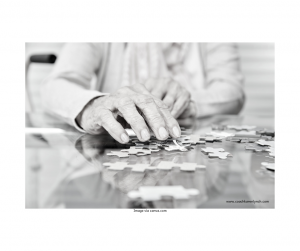TAKING THE KEYS
JUNE 16, 2020 BY KAREN LYNCH

The disease might hide the person underneath, but there’s still a person in there who needs your love and attention.” – Jamie Calandriello
“Last week was emotional on so many levels – the riots, school, graduation, my dad, and ongoing COVID. When I think ‘I can’t sink any lower,’ I do. I have very little motivation other than getting out of bed and take care of others with little gratitude or appreciation. That said, I’m not in a good place. I’ll leave it at that and hope that this shit show is over soon,” I texted to a friend last week.
I hadn’t communicated with her in several weeks; I felt terrible about it. I wanted to reach out and call or send a text, but I couldn’t. I felt lost in an abyss of hopelessness and overwhelming sadness, unable to move or function.
I had turned off the media and stopped reading the paper. I engaged in social media, but after posting about the riots and imposed curfews, I felt worse. My son’s High School virtual graduation loomed ahead as well as my younger son’s 8th-grade graduation. I was also spending a lot of time with my dad, which was becoming more difficult and depressing.
The other day, on the way home from my dad’s house, I stopped by my friend Janet’s house for a glass of wine.
I settled into my chair on the deck and took a long sip.
“You’ve gone dark, girl. I haven’t seen you in months,” Janet said, “we had a great routine, walking the dogs together each day.”
“I know,” I sighed, “the last few weeks have been rough.”
I shared my woes about my dad; about how I had spent three hours helping him organize his custom fly rods only to have to go back the next day because, in my dad’s words, “someone took them.” He had removed all of them from the rod tubes, tubes that I had meticulously labeled. My dad had placed them on the bathroom counter, and all the rods, in their felts, on his bed.
She shook her head as I shared the story of his lost phone. “It fell in the tree,” he told me when I opened my front door. Despite having my phone number Dynamo labeled on the back of his driver’s license and posted on large pieces of paper near his landline at home, he had gotten into his truck and drove the .9 mile to our home. On the way up, he hit a curb and slashed his tire.
“Grandpa has a flat tire,” my older son told me as he came in the back door; I was just climbing into the car to drive down to find my dad’s phone. I shook my head. In the end: the phone was on the workbench in the garage, and $422.00 later, the tired was repaired and two lug nut keys ordered to replace the one he had lost. I now worry about my dad as much as I do with my kids.
When COVID restrictions lifted, I scheduled an appointment with a neurologist; my dad agreed to go and get tested to determine the severity of his memory loss.
My dad let me drive him to the appointment – I no longer trusted his driving – and I had gotten into the habit of pulling into the driveway, right up to the garage door, blocking his truck inside.
My dad was in good spirits as we pulled into the parking lot and entered the building, heading up to the fourth floor and into the Neurology Department.
The doctor was kind and patient as he led my father through a series of questions.
“Any history of Alzheimer’s in your family?” he asked.
“No,” my dad had replied.
“Yes,” I said to the doctor, correcting my father. “My paternal grandmother,” I said.
My dad was stunned. “No, Karen,” he said adamantly.
“Yes, dad,” I replied.
My dad looked confused; he couldn’t remember.
“No, I don’t think so,” he said.
“Dad,” I said gently, “Yes. It was in 1990. You’ve been busy over the last 30 years: grandchildren, travel, and fishing. It’s easy to forget Grandma had Alzheimer’s,” I said. I had mastered the fine art of placating my dad so that he didn’t get upset with himself for forgetting things.
The doctor continued to ask general questions and then moved into an assessment, the Montreal Cognitive Assessment, a cognitive screening test designed to assist Health Professionals in the detection of mild cognitive impairment and Alzheimer’s disease.
My dad got some of the questions correct, but many of the questions he answered incorrectly or were left unanswered. As I sat next to my dad, a little piece of my heart broke at each failed attempt to provide the correct answer.
When the assessment was over, the doctor explained the results; my dad hadn’t passed the evaluation, and without any warning, the doctor said, “I’m sorry, you can’t drive any longer.”
If the floor opened and a giant hole had appeared, I would have eagerly allowed it to swallow me whole. I took a sideways glance at my dad; he just stared ahead.
The doctor continued to explain that dementia is progressive and that symptoms such as memory loss, visual-spatial disorientation, and decreased cognitive function would only worsen, negatively impacting their driving skills.
I sat in my chair, rigid and unable to move. The doctor had been the bearer of bad news, not me.
“Dad, are you okay?” I asked. My dad didn’t answer.
“Dad? Are you mad?” I pushed, feeling terrible as if I had baited and switched him yet relieved: my brothers and I were very concerned about his driving.
“No, Karen, I’m not mad. I am pissed,” he said succinctly.
The drive home was painfully quiet; my dad unable to speak about what had transpired.
We had lunch and sat on the patio, my dad’s movements slow and deliberate.
“I’m sorry, dad,” I said for the umpteenth time.
“It’s not your fault; it’s mine. I should have tried harder on the test,” my dad said.
I sat and watched him; his bright blue eyes void of their usual sparkle, his voice resigned.
It was four years ago that I sat out on the patio with my mom, her body wracked with cancer, the look of defeat on her face. The feeling of helplessness was overwhelming then; that same feeling bubbled up inside again.
I used to tell people that watching my mom die of cancer was the worst experience I’d ever had; now, facing the reality of my dad’s dementia, I wonder which is worse and realize neither is: they both suck.
As my dad stared off into space, I realized I was facing another one of Life’s chapter titled “The Beginning of the End;” however, this precious time of providing love and support would take a different twist: knowing I will lose my dad before he is gone.
TESTIMONIALS
“Thanks for your wise words of patience in my waiting. I really needed that and kept going back to it when I was feeling lost.”
— Janice Z – Coaching Client
CONNECT!
RECENT POSTS
RECENT COMMENTS
Mary on Fledging Student
Lelana on Happy Each Day
kristi on Taking the Keys
Mikki ashe on Taking the Keys
RoxaNNe SusOeff on Taking the Keys
CATEGORIES
ARCHIVES
COMMENTS

kristi says
JUNE 17, 2020 AT 2:47 PM
Hi Karen! I’m so sorry you are going through this. But i’m so glad you decided to share this story. I too am seeing cognitive decline in my dad and it scares me like no other. Your post really hit home and i know this is something i will have to do some day soon too. Sending you lots of hugs, love, and patience. -kristi

Mikki ashe says
JUNE 17, 2020 AT 2:04 PM
Hang in there, dear lady. Your plate is more than full, and you are handling it most bravely! Just Try to remember “this” is temporary, and better times will be coming, even if it’s hard to believe that right now. I so enjoy your writing! FOndly, Mikki (Tawny’s mOm).

RoxaNNe SusOeff says
JUNE 17, 2020 AT 8:24 AM
This brought tears to my eyes. Sending you hugs and prayers.

cynthia klein says
JUNE 16, 2020 AT 10:18 PM
How painful. I appreciate your courage to share.
Many hugs from me.








